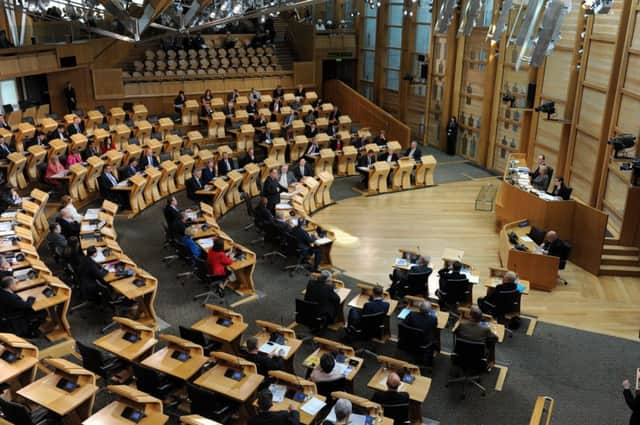Comment: Procurement strategy must deliver


“Rome wasn’t built in a day” goes the adage – and neither was Scotland’s new procurement bill, which is certainly taking its sweet time in passing through Holyrood.
But then that’s really no bad thing; we have to get it right if we want some truly robust legislation that will convincingly weather the elements in much the same way we hope that the projects it spawns will.
Advertisement
Hide AdAdvertisement
Hide AdAfter all, we are talking about no less than Scotland’s construction future being at stake. To that end, the greater transparency drive that is to be adopted across Scotland through the new bill is truly to be welcomed.
Indeed, the Scottish Government’s plan to improve the transparency and fairness of below threshold procurements is a wholly positive move that must be embraced.
Small and medium-sized firms (SMEs) are being alerted to major changes to procurement legislation and practice – including the implementation of new spending thresholds for services and construction contracts at £50,000 and £2 million respectively – which are expected to have a huge impact on how they deliver services.
While some believe that the legislation, which had to be framed within European Union procurement law, could hinder SMEs by swamping them with bureaucracy, I maintain that they should be positively encouraged by the move.
The government sees sustainable procurement as being at the heart of Scotland’s economic recovery, not to mention a re-focus on refurbishment, and I agree that creating a national framework will help to ensure maximum economic benefit.
With public sector spending on goods and services amounting to some £9 billion or £10bn per annum in Scotland, there are big financial stakes involved and the benefits look set to be significant. With lots of publicly-funded infrastructure projects in the pipeline, the bill offers huge potential to transform the efficiency of public procurement, and to encourage many more, particularly smaller, building companies to bid for public sector contracts.
With more legislative muscle behind them, frameworks, in particular, can help public sector bodies in Scotland access best value, high-quality solutions for new and refurbishment projects, providing quick and easy access to contractors for the likes of schools, local authorities and other social landlords.
In fact, according to a recent Scottish Government report, frameworks are “more efficient in getting projects to market and they facilitate the development of more integrated supply chains”.
Advertisement
Hide AdAdvertisement
Hide AdUltimately, the procurement bill should make it easier for, and encourage, small businesses to bid for contracts.
With lots of publicly-funded projects planned, it offers the opportunity to transform efficiency by helping achieve the optimum balance of cost, benefit and risk for effective delivery.
Likewise, frameworks must continue to place a strong onus on allowing members to reduce risk, while judiciously complementing the government’s legislative plans.
It is of paramount importance that the procurement strategy is developed in such a way that it allows the client to get the best product possible and the best value for money – and superior frameworks can only aid that process.
• Clive Feeney is Scotland divisional manager with public sector purchasing consortium LHC.